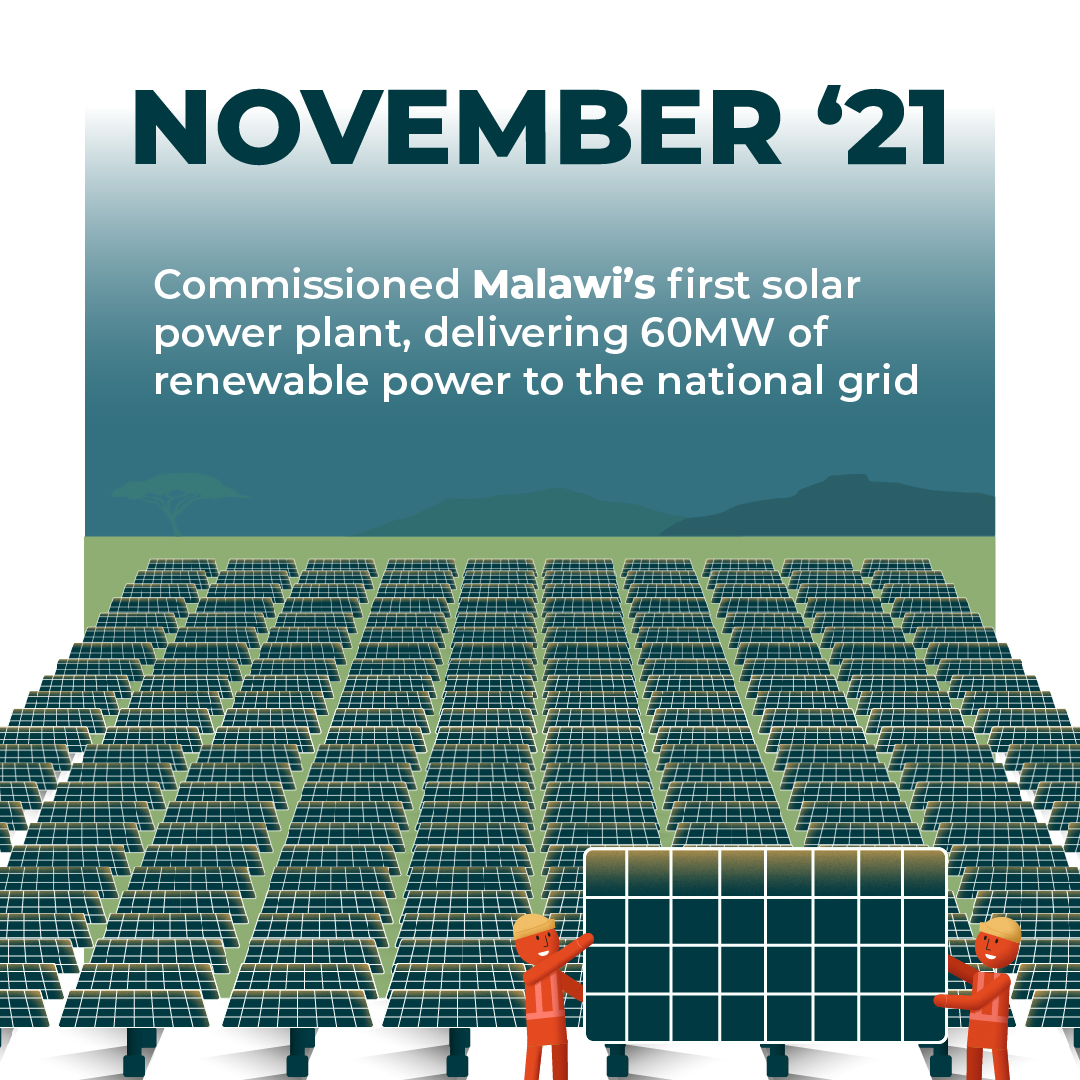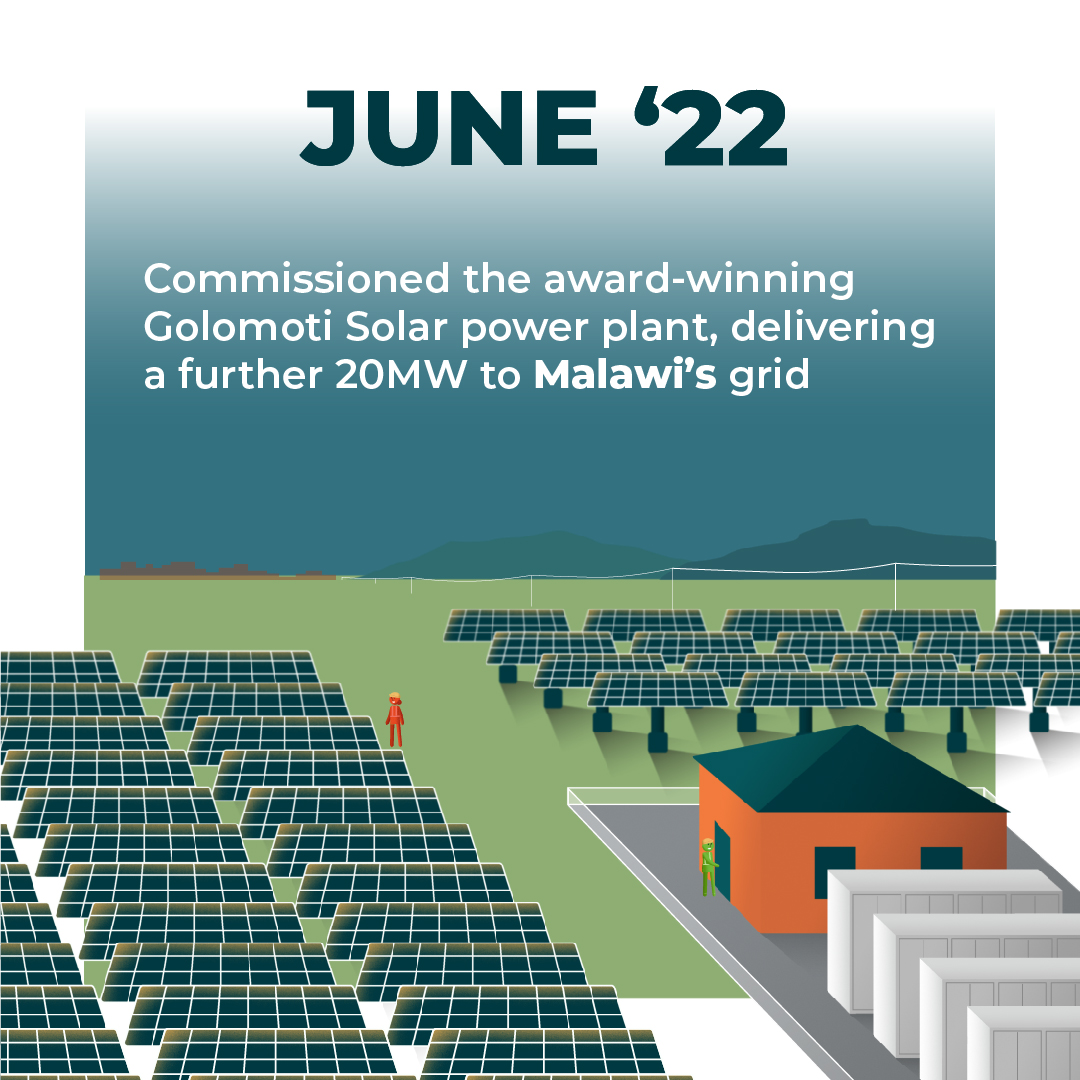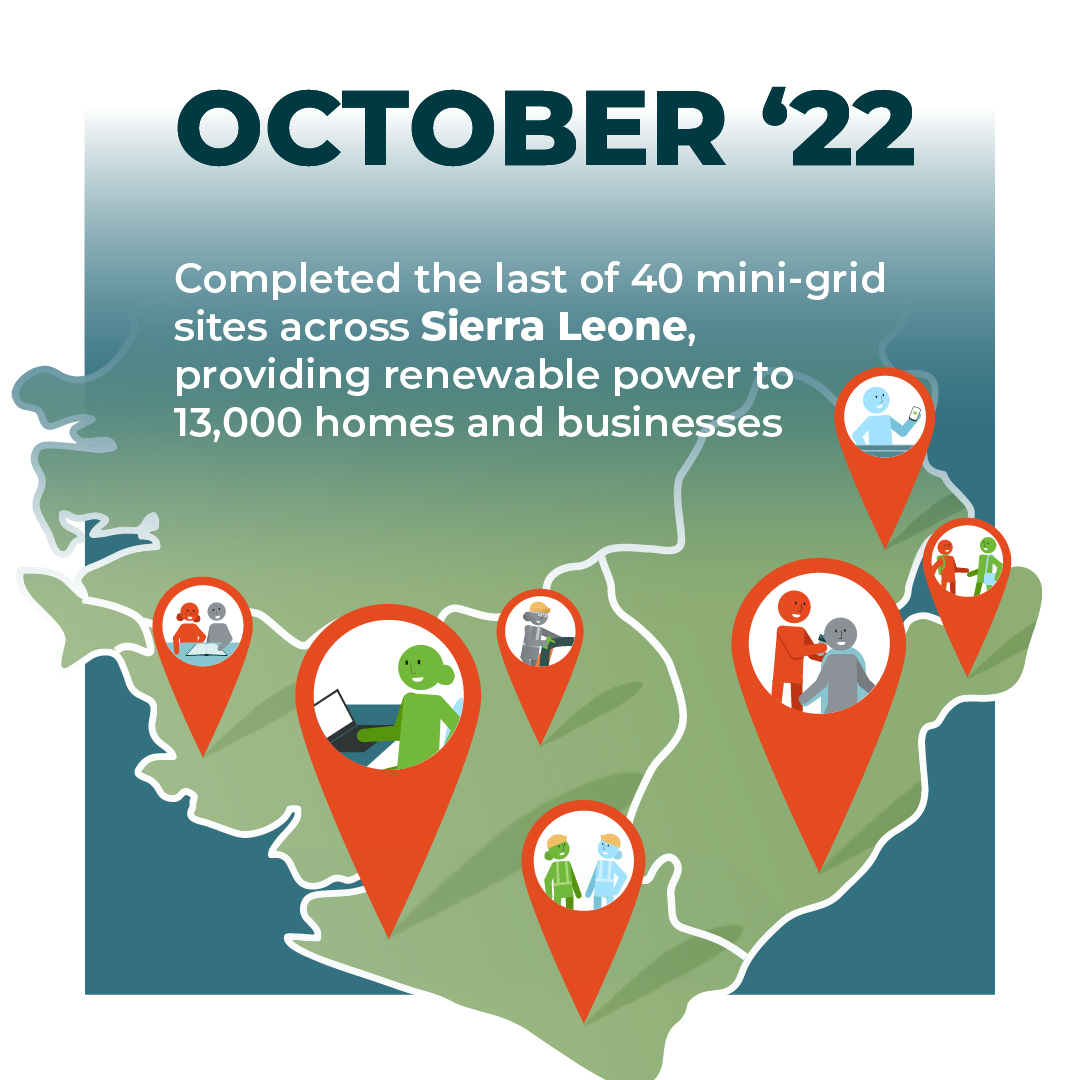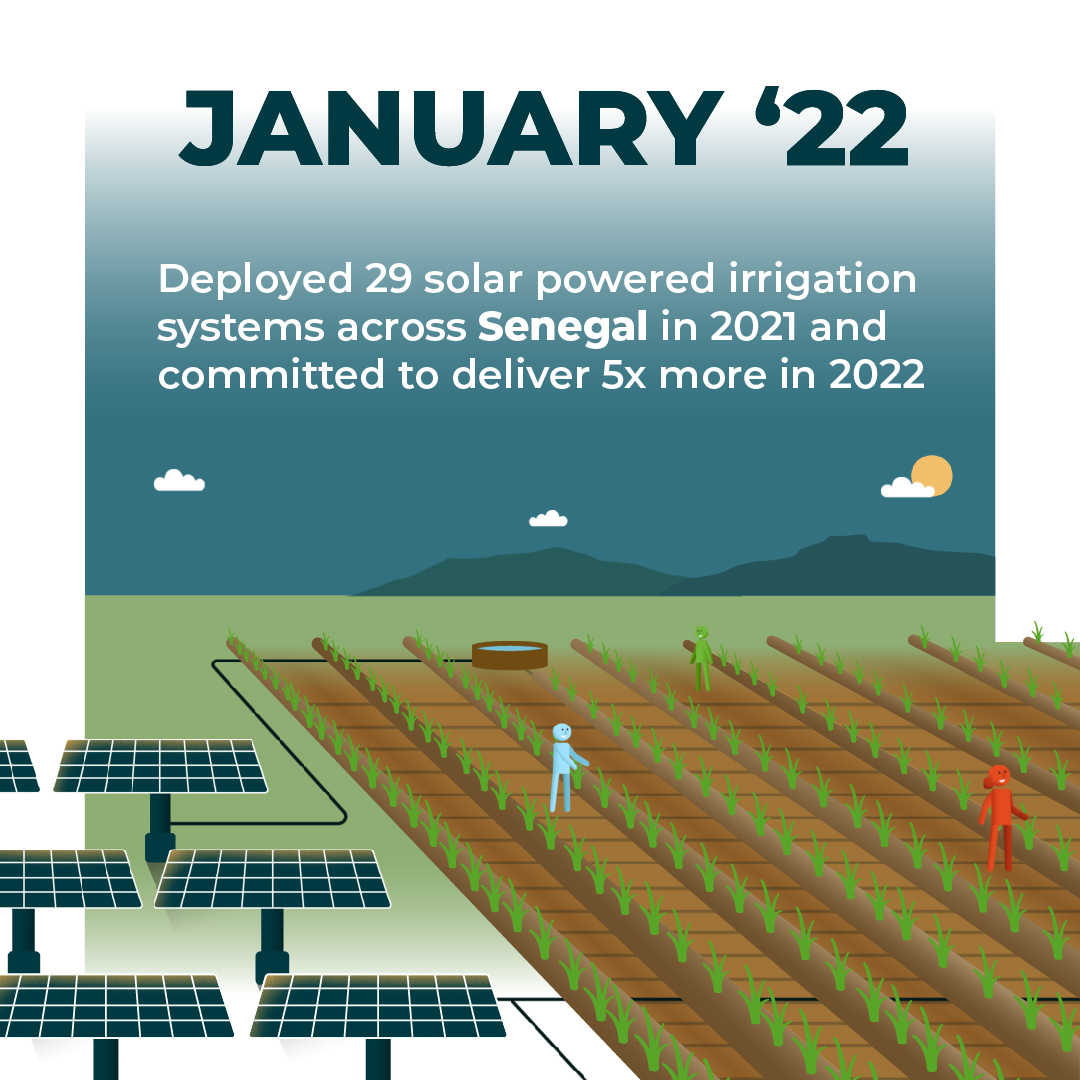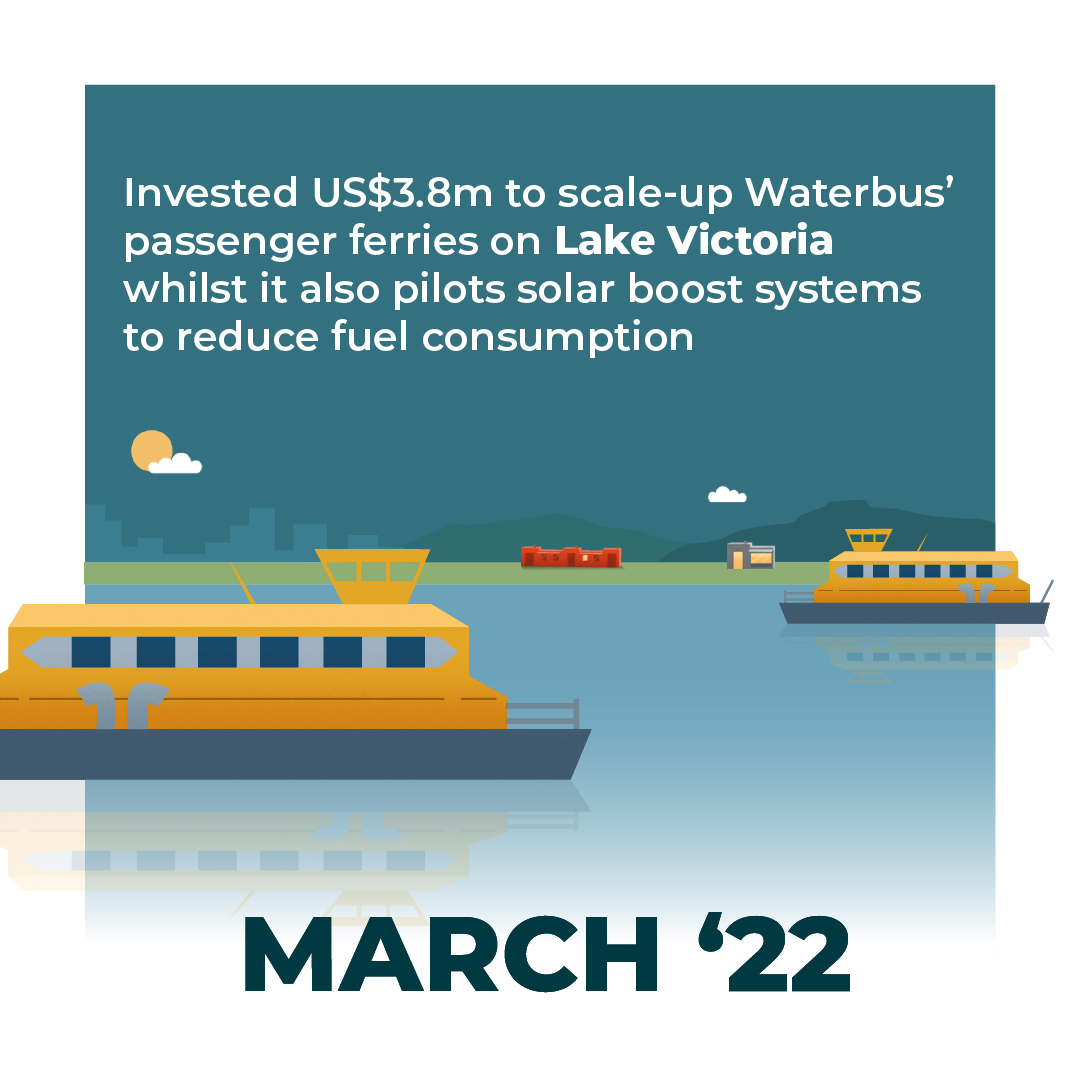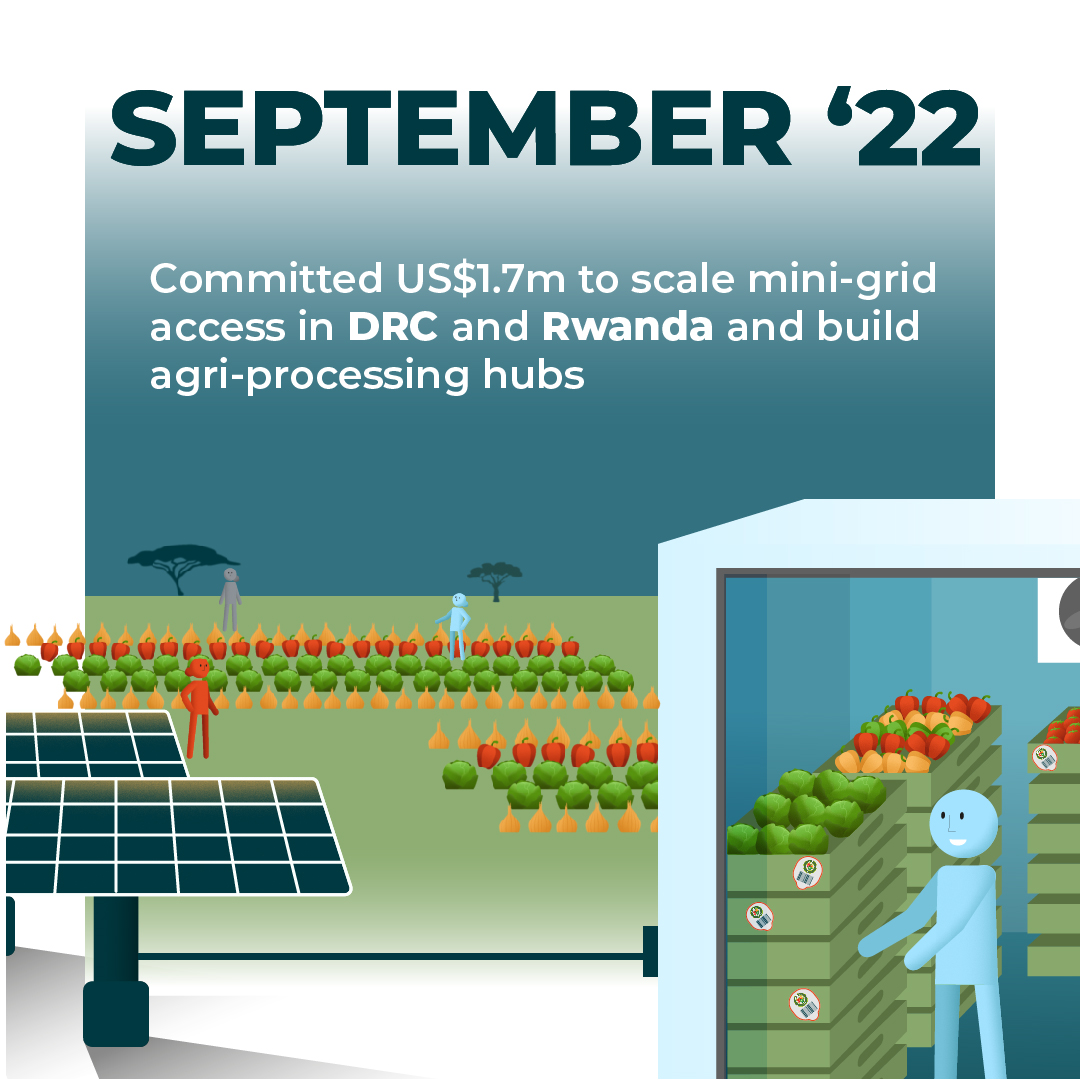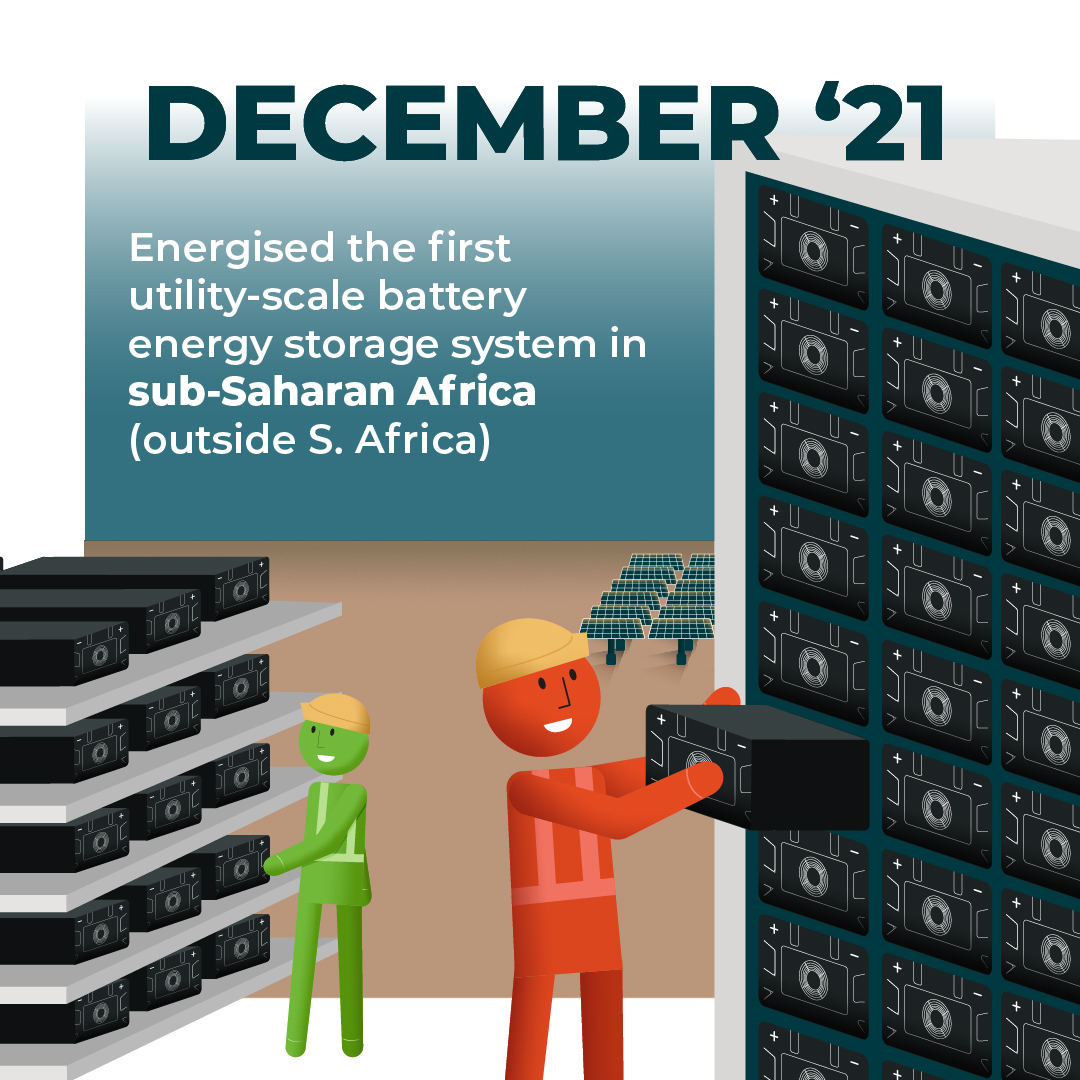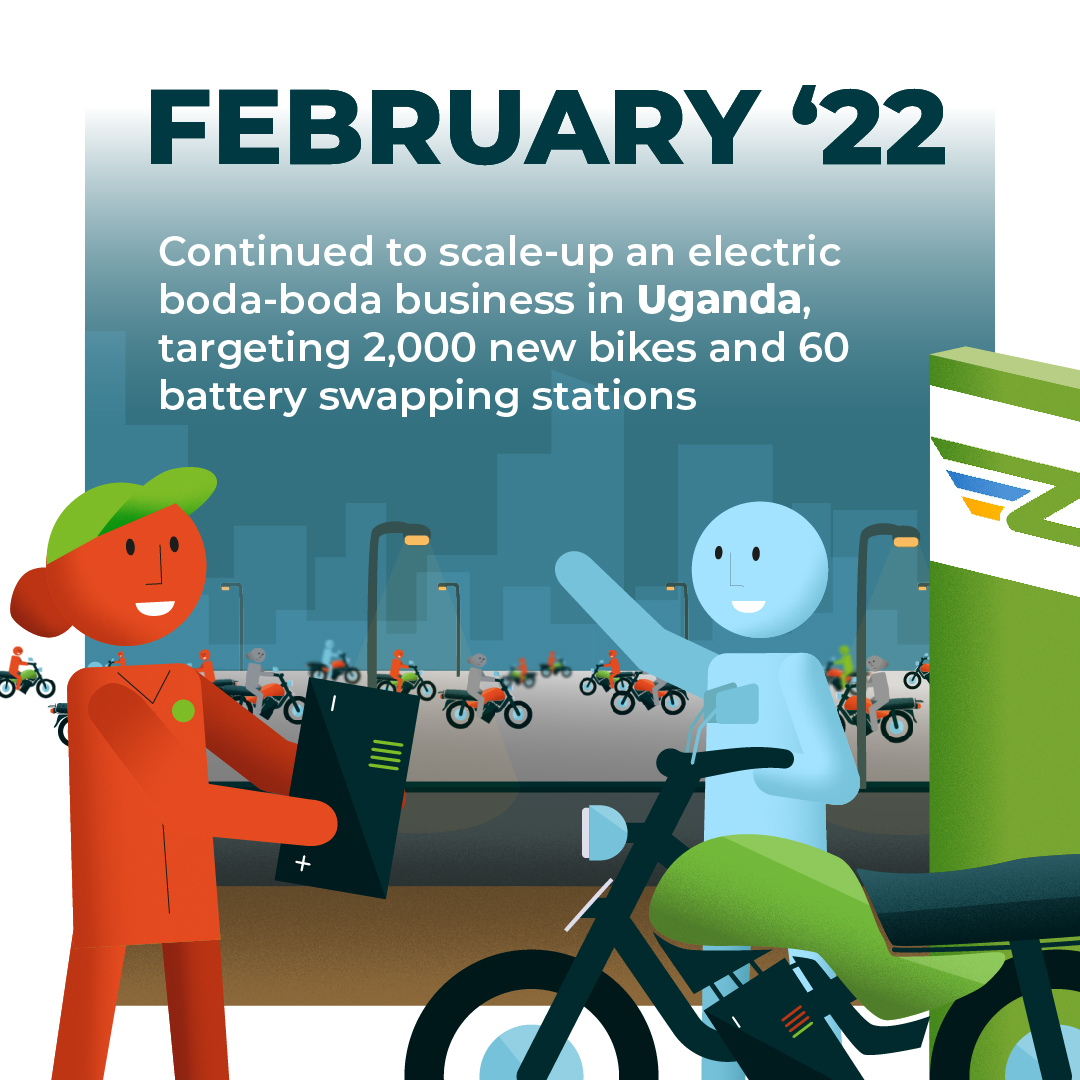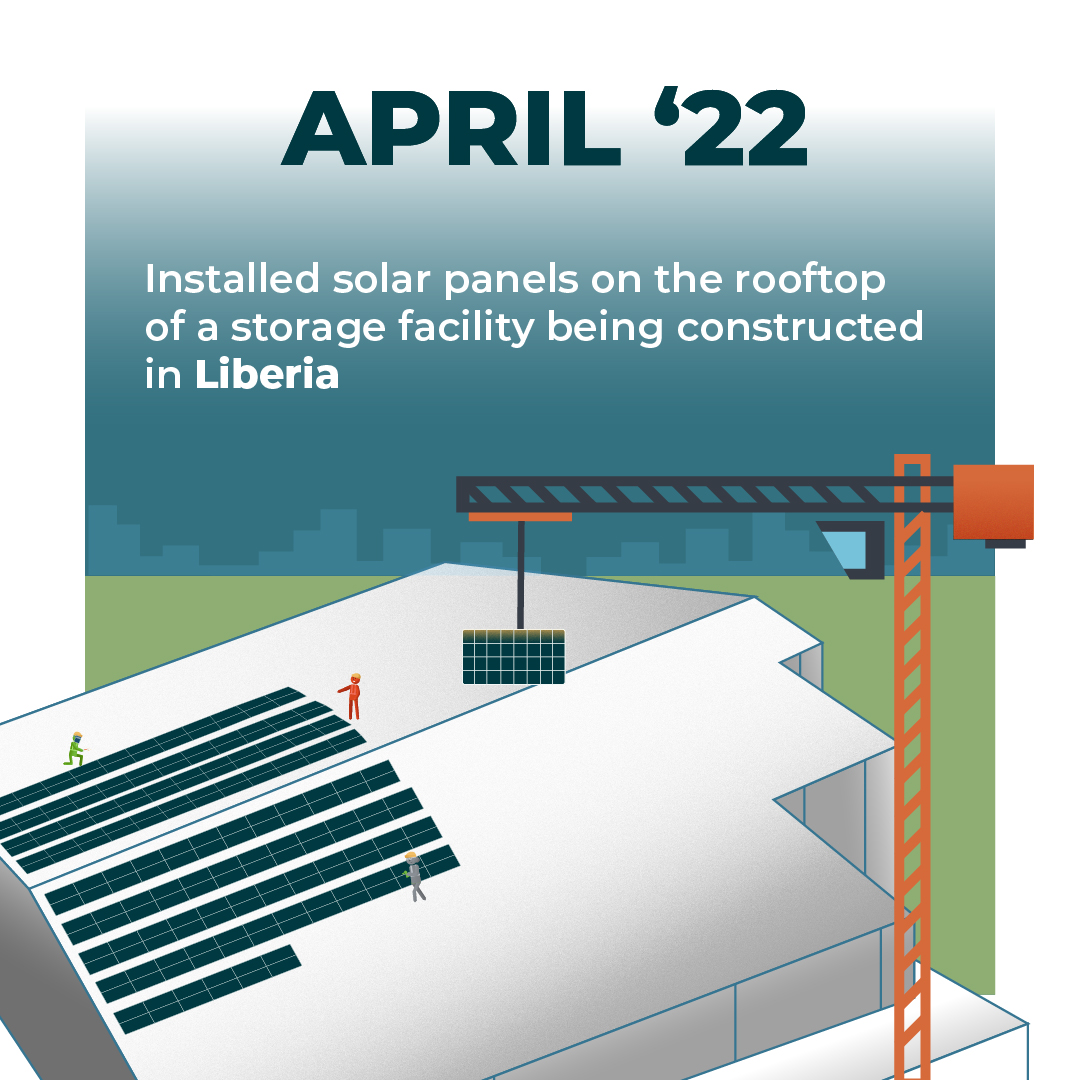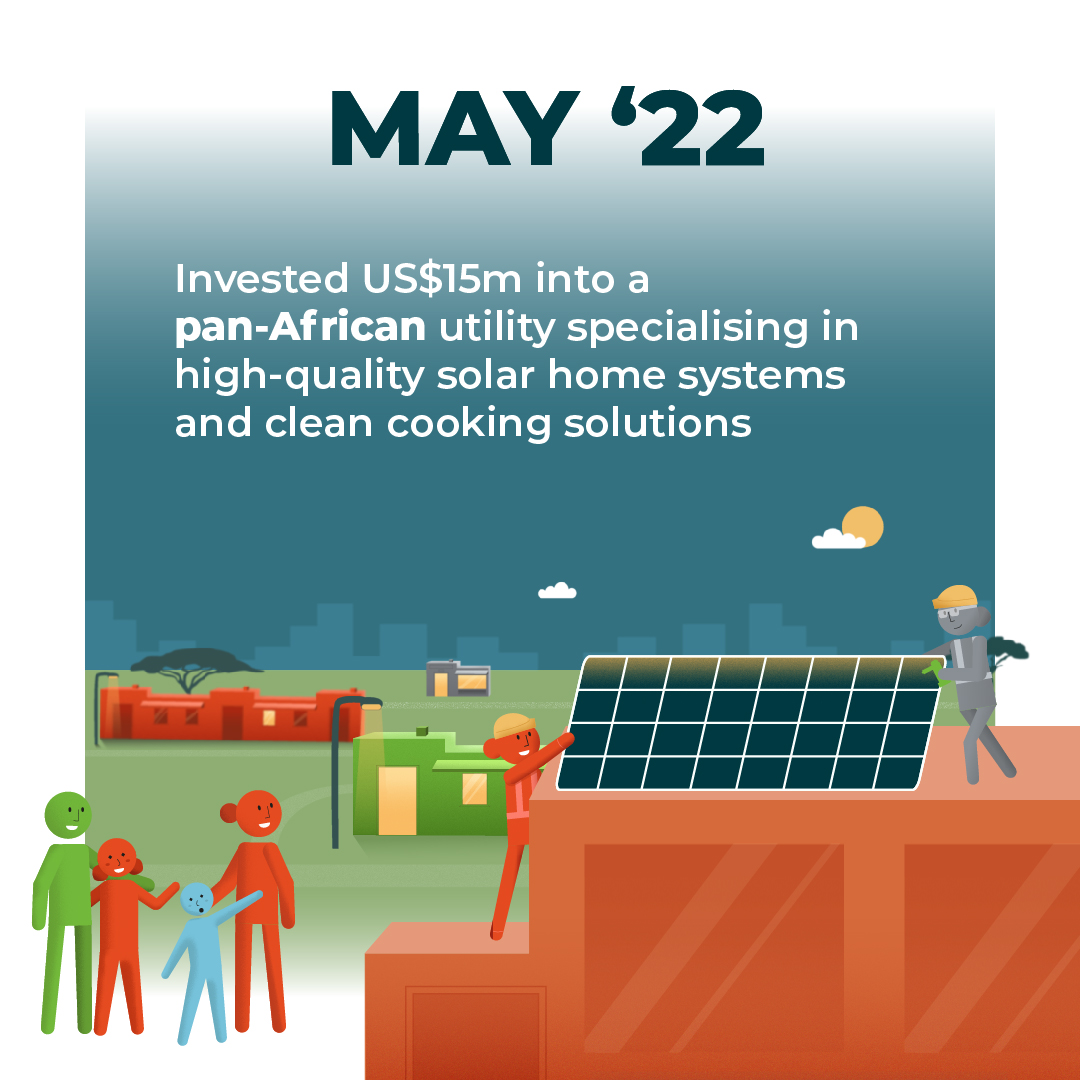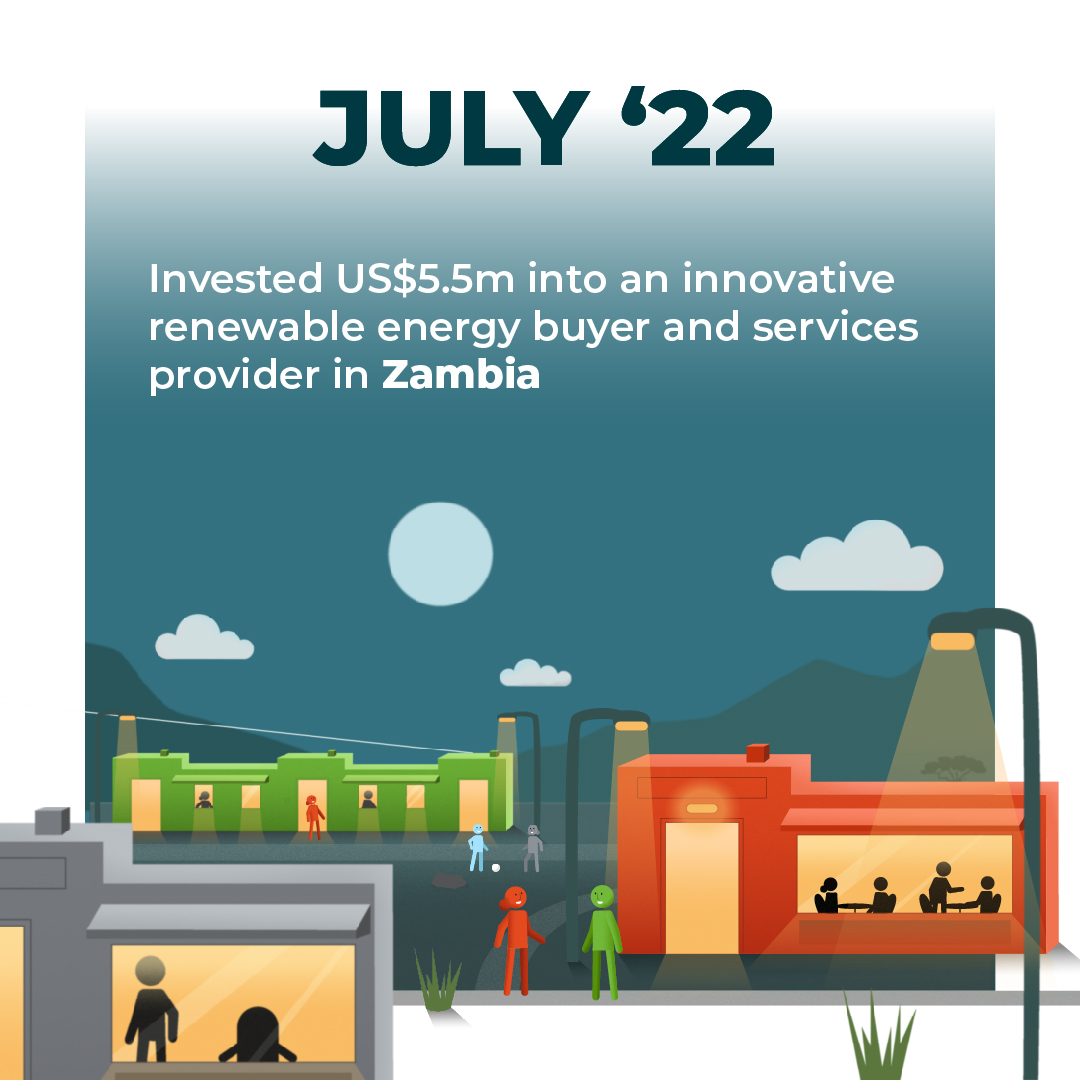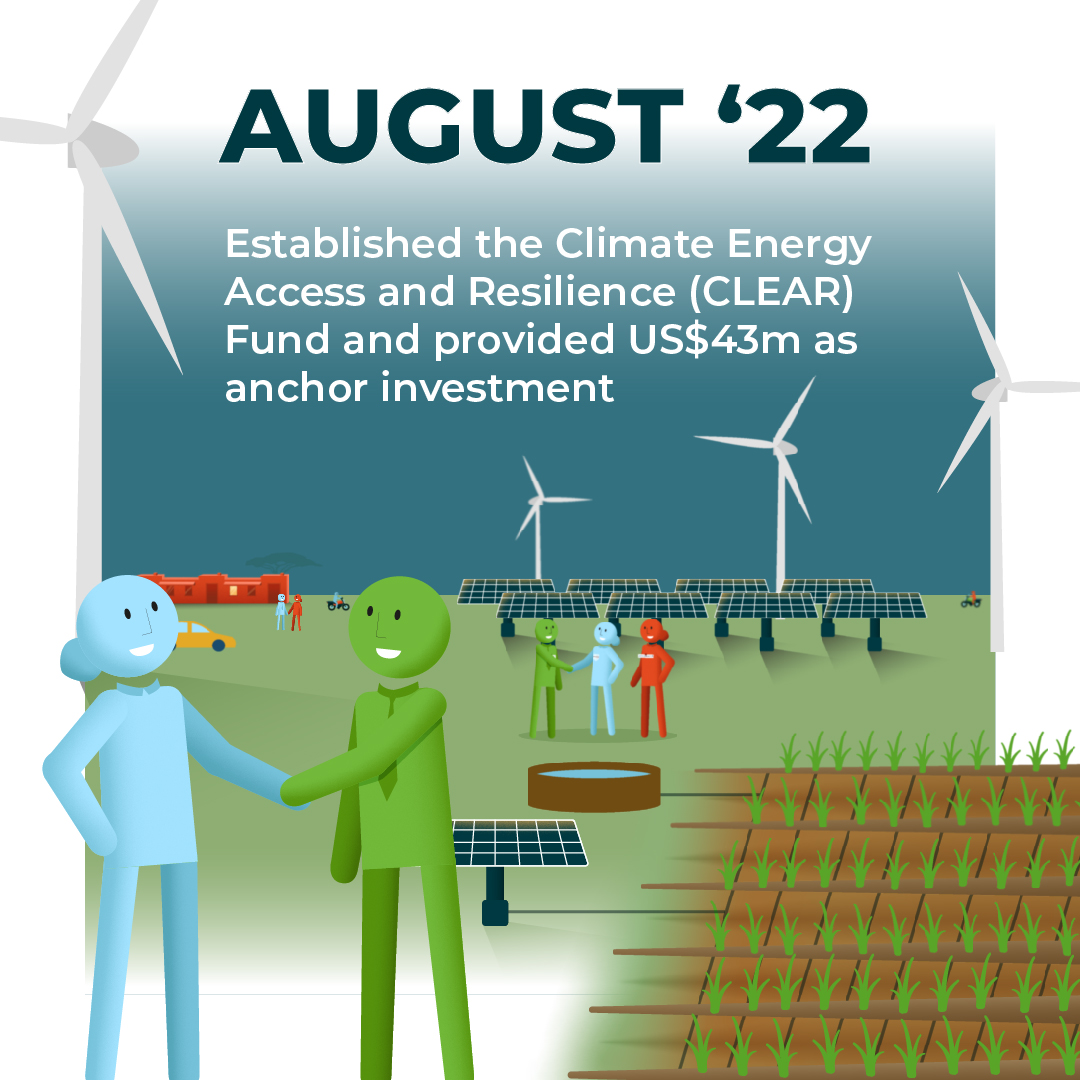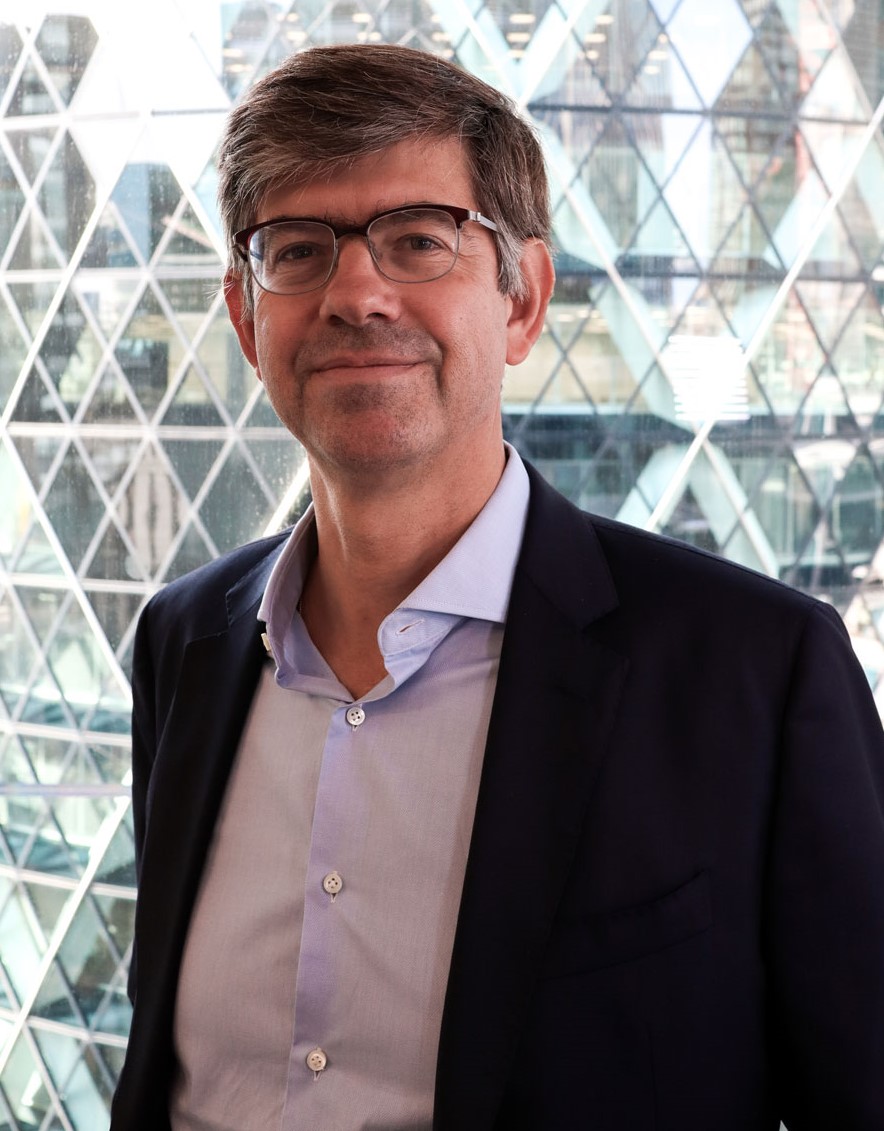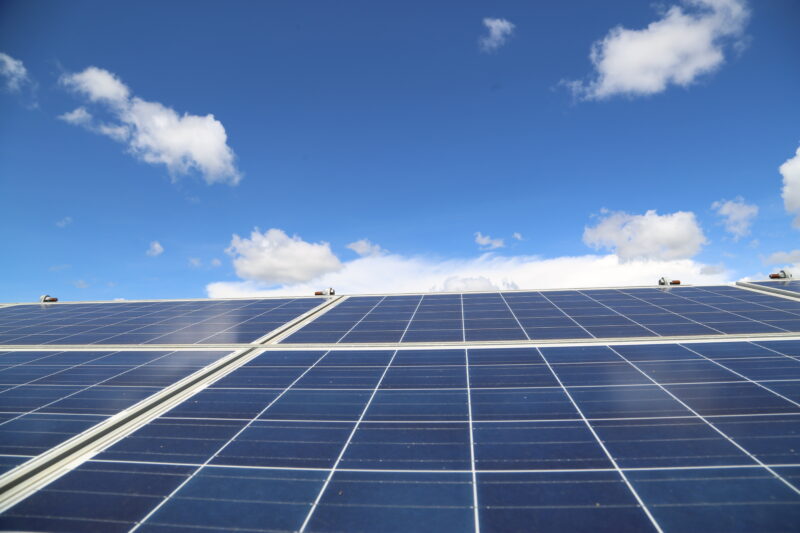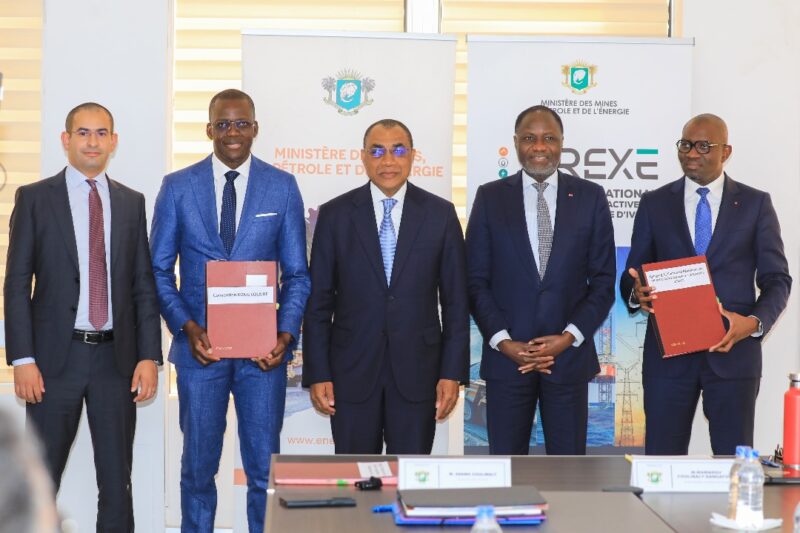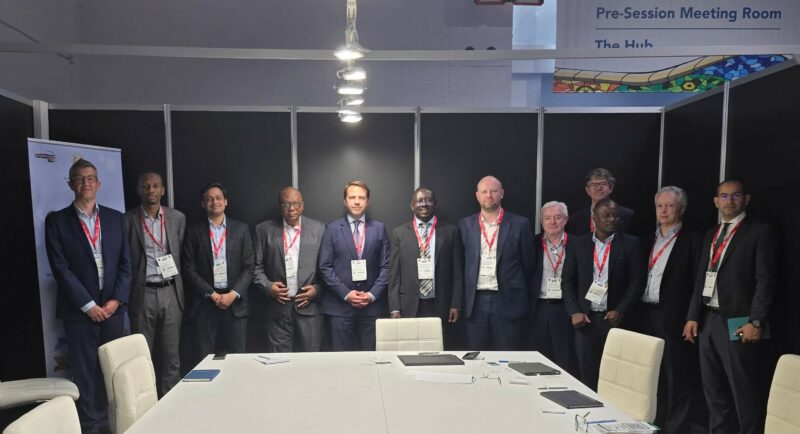As COP27 draws to a close, there are renewed calls for the pace of action on climate change to accelerate and for fine words and good intentions to translate into tangible action. In the run up to this year’s summit, we pulled together some of the achievements of the past twelve months here at InfraCo Africa which, with the support of PIDG and our Owners, represent a substantial array of climate-focussed infrastructure projects and investments of which we are rightly proud. I would like to reflect a little on those achievements, made possible by a team of dedicated staff and project partners, which I hope, will galvanise us as we move forward in our efforts to achieve even greater impact for people and planet in the coming twelve months.
Accelerating clean energy access
Mitigation of Greenhouse Gas (GHG) emissions is central to efforts to keep alive the Paris Agreement goal of limiting global temperature rise to below 1.5⁰C.[i] Achieving a just transition to net zero requires developed nations to support developing countries, such as those across sub-Saharan Africa, to leapfrog high emitting technologies without sacrificing economic development. Since COP26 in Glasgow a year ago, InfraCo Africa has switched on over 80MW of new renewable energy.
In Malawi, our Salima Solar and Golomoti Solar plants are generating reliable power for homes and businesses connected to the national grid, and in Sierra Leone, we will shortly be energising the last of forty mini grids serving over 13,000 homes and businesses across the south and east of the country. Off-grid energy is accelerating access to clean power, displacing diesel generators and delivering the economic and social benefits that accompany energy access. Rural clinics are treating people at night and vaccines are kept cold. Businesses are opening longer hours and growing their ambitions and children are learning computer skills and studying into the evenings.
Delivering for communities
We were set up to focus on delivering development impact. Climate change represents the single largest threat to human development and so we adopt a climate lens when evaluating each and every investment without losing our focus on achieving the UN Sustainable Development Goals (SDGs).
In Senegal, our Bonergie Irrigation project is working to support rural farmers’ livelihoods by installing affordable solar-powered irrigation systems which maximise yields whilst also cutting emissions by displacing diesel pumps. Following feedback from farmers, the project is now rolling out drip irrigation systems designed to target scarce water where it is needed most, increasing the efficiency of farming whilst protecting valuable groundwater.
In Rwanda and the Democratic Republic of the Congo, our Equatorial Power project will deliver off-grid solar in rural areas. EP provides homes and businesses with clean energy and access to agricultural hubs which enable farmers to keep their crops fresh, process and package their produce to attract higher prices, and access local markets.
However, given that African nations collectively emit under 4% of global carbon emissions,[ii] some consideration must be made for a ‘just transition’ whereby some investments emit C02 but are deemed to be essential for economic development. Here, we try to use the best available technologies to emit as little as possible. This is evidenced by our Waterbus passenger ferries investment on Lake Victoria. Emissions from the safe, efficient diesel ferries are around 60% lower than for the nearest alternative – canoes powered by diesel outboard motors. Waterbus is looking to pilot solar boost technology on its vessels to further reduce fuel consumption whilst still delivering its vital marine passenger transport services. Likewise, our East Africa Marine Transport project will emit C02 but, by taking freight vehicles off congested roads around the Lake, it is anticipated that it will reduce overall emissions whilst enabling producers to reach regional markets easily, cutting avoidable waste and saving them valuable time.
Innovating at the frontier
What is exciting about our work is that we can be first movers, testing new technologies and business models with a view to attracting finance and private sector investment into new markets or sectors which may not previously have been considered.
Electric mobility is a key example, our support for Zembo will scale a small business by expanding its fleet of electric ‘boda, boda’ motorcycle taxis and charging infrastructure to meet demand for cleaner transport from customers in Uganda. Once operating at scale, Zembo has potential to expand its business and attract further finance.
With support from PIDG TA we have been able to install a rooftop solar system to power our Liberia Inland Storage Facility. It is the first system if its kind for a storage facility in the country and sets a precedent for what can be achieved with regards sustainable power for industrial buildings.
Our award-winning Golomoti Solar project has utilised support from Innovate UK to pioneer the use of a utility-scale battery energy storage system (BESS). The BESS helps to overcome the challenges of adding intermittent renewables to the existing national grid, demonstrating the efficacy of this technology for future projects.
Transforming markets to scale our impact
I am well aware that PIDG and its companies, although growing steadily, remain relatively modest players in the grand scheme of things. However, our mandate to operate at the frontier to demonstrate what works and to then to mobilise further finance enables us to ‘punch above our weight’ when it comes to accelerating the pace of climate action.
In the past year, we have invested US$78.5 million into initiatives designed to transform African markets. We have done so with a view to unlocking larger pools of private and institutional finance for climate-focussed infrastructure. The Climate Energy Access and Resilience Fund which we launched with Helios Investment Partners will tap into local and international investors’ growing appetite for supporting a pipeline of high-quality infrastructure projects and climate friendly businesses. CLEAR will also accelerate the pace of change by enabling developers to exit projects and recycle their funds and expertise into new ones. Our new guarantee company in Kenya will build on our experience with InfraCredit Nigeria – and the expertise of the wider PIDG – providing local currency guarantees to unlock new sources of institutional finance for Paris-aligned initiatives.
We are also supporting Africa GreenCo and Bboxx to demonstrate the value of their innovative models which will accelerate access to clean energy – both on and off-grid – and attract further private sector finance on a national, regional and pan-African scale.
Where do we go from here?
Despite the significant challenges faced during 2021-2 we have proven that it is possible to deliver high quality climate-resilient infrastructure projects in sub-Saharan Africa. As we play our part in global efforts to achieve a just transition to net-zero, we are lucky to have strong support from our Owners – the governments of the UK, the Netherlands and Switzerland. With their backing, we will continue to support our existing portfolio alongside our work to identify new projects and to attract new investment to significantly scale and accelerate the pace of delivery of essential infrastructure on the continent.
As has become abundantly clear, the climate crisis is multi-facetted. Extreme weather events and longer-term impacts such as prolonged drought can affect people’s personal safety, their living conditions and livelihoods and, crucially, their resilience to future climate shocks. It stands to reason then that the response must also be holistic. The projects and investments I have described above span not only those that directly support global efforts to achieve net zero emissions – renewable energy and clean transport – but also those which promote adaptation to changing conditions such as irrigation and agri-processing facilities which enhance food security, reduce waste and stabilise household incomes. They also seek to attract more finance to deliver action on a much larger scale. This holistic approach is vital to ensure that people across sub-Saharan Africa will not only be able to survive climate challenges, but they will also be equipped to thrive in what will likely be a vastly different world.
[i] https://unfccc.int/sites/default/files/english_paris_agreement.pdf
[ii] https://www.statista.com/statistics/1287508/africa-share-in-global-co2-emissions/#:~:text=In%20the%20last%20two%20decades,share%20among%20all%20world%27s%20regions.


